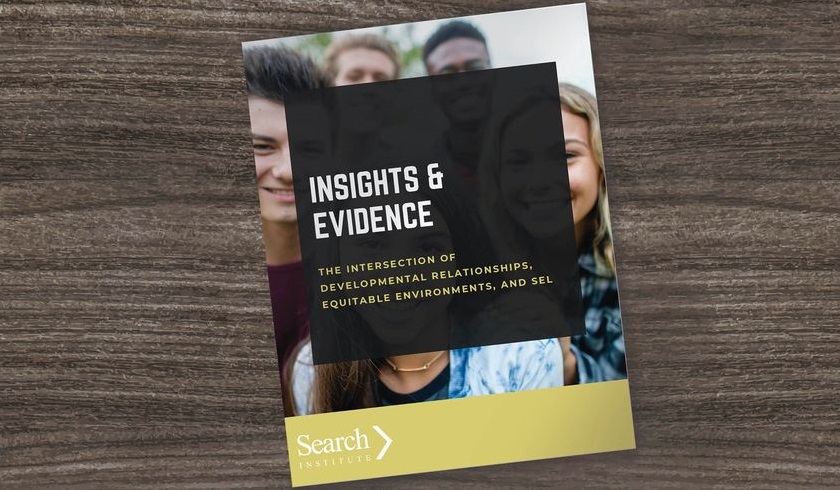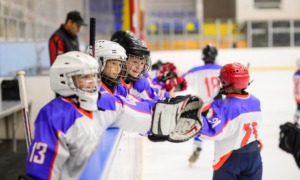
Search Institute Facebook page
A new Search Institute report indicates that integrating SEL in a school or after-school program can be done through relationships and environment.
How do youth organizations and schools integrate social and emotional learning into their full range of activities? How do they also respond to the need for greater racial equity and inclusiveness?
A way to pull these threads together is to focus on developmental relationships, according to new research from the Search Institute, a Minneapolis nonprofit that conducts and applies research on youth development.
It found that when young people experienced developmental relationships in the context of diversity, fairness and connection across racial and cultural boundaries, they also showed strong social and emotional abilities.
“As we looked at lots of schools and programs that want to do what sometimes is called systemic SEL, or schoolwide SEL, very often we would hear: Well what does that mean? Do I need to adopt a particular SEL program and do it in every classroom or with all of our groups?” said Kent Pekel, president and CEO of the Search Institute.
“That may or may not be the right thing to do,” he said. “What our work suggests is that really beginning with an emphasis on developmental relationships and equitable environments is a really powerful way to start that journey.”
The two steps are:
- Build developmental relationships with all youth
- Ensure all youth experience and embrace diversity, equity, and inclusion.
The Search Institute report, “Insights and Evidence: The Intersection of Developmental Relationships, Equitable Environments, and SEL,” explains these findings and the three sets of measures used.
One survey assessed the presence of developmental relationships by asking whether a young person had relationships with adults that challenged growth, provided support, shared power, expressed care and expanded possibilities.
“These are measures that were developed through a number of different research studies over the last several years,” Pekel said.
A second survey assessed young people’s experience of equity in schools and programs by asking about fairness, the embrace of diversity and reaching across racial and cultural boundaries.
A third assessed young people’s relationship skills, responsible decision-making, self-awareness, self-management and social awareness — the five areas that show social and emotional competence.
The survey was given to youth in grades 6 through 12 who were in school, out-of-school time programs and student support programs. They were asked about their relationships with adults in those schools and programs.
The students in out-of-school time programs reported stronger developmental relationships with adults. Youth identifying as Black/African American or Asian/Pacific Islander reported stronger developmental relationships in general.
The Search Institute defines developmental relationships as close connections through which young people discover who they are, gain abilities to shape their own lives and learn how to interact with and contribute to the world around them.
Only one-fourth of the young people experienced their relationships with teachers or staff as strongly promoting diversity, equity and inclusion. But they experienced this more with OST staff than with teachers.
The students who reported stronger developmental relationships as well as more diverse, equitable and inclusive environments also showed higher social-emotional competence.





























